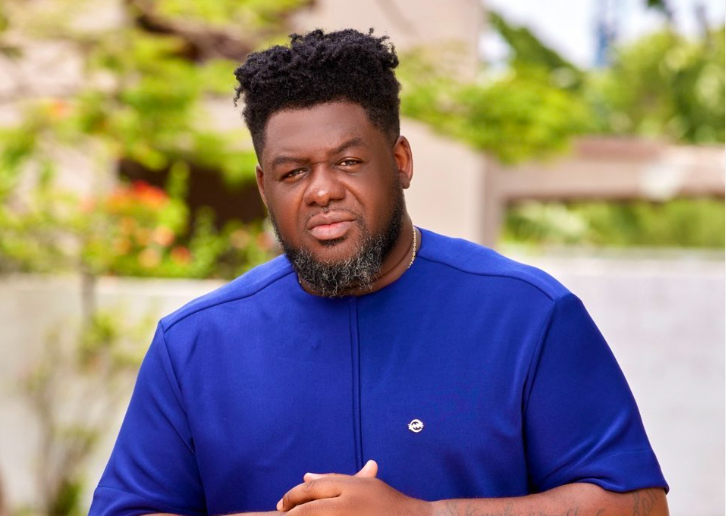Why Marriage Counseling Doesn’t Always Work: A Closer Look at the Challenges
- orpmarketing
- May 20, 2025
- 5 min read

Marriage counseling is often seen as a lifeline for couples navigating rough waters, a place where communication can be rebuilt, trust restored, and love rekindled. But let’s be real—sometimes it just doesn’t deliver the happily-ever-after couples hope for. Despite its promise, marriage counseling fails for a significant number of couples, and the reasons are more complex than a simple lack of effort. With divorce rates hovering around 40-50% in many developed countries, it’s worth digging into why this well-intentioned intervention falls short for so many. Drawing on recent studies and data, this post explores the key factors that can undermine marriage counseling’s effectiveness, offering a candid look at what’s going on behind the therapy room door.
The Numbers Don’t Lie—But They Don’t Tell the Whole Story
Let’s start with the data. According to the American Association of Marriage and Family Therapists (AAMFT), about 75% of couples report some improvement in their relationship after counseling, and 90% note better emotional well-being. Sounds promising, right? But here’s the flip side: roughly 30% of couples who undergo therapy still end up divorcing, and some studies suggest that up to 38% of couples see no lasting improvement or even deteriorate further within a few years post-therapy. A 1991 study cited in recent analyses found that 56% of couples either remained unchanged or worsened two years after counseling, and for those receiving behavioral marital therapy, 38% divorced within four years. These numbers highlight a stark reality: counseling works for some, but for others, it’s a temporary bandage on a deeper wound.
Timing Is Everything—And Couples Often Miss the Window
One of the biggest reasons marriage counseling fails is timing. Couples tend to wait too long before seeking help. Dr. John Gottman, a leading relationship researcher, notes that couples often endure six years of unhappiness before stepping into a therapist’s office. By then, resentment has built up like plaque on teeth—hard to remove without serious work. A 2024 study from the Journal of Marital and Family Therapy reinforces this, showing that couples who seek help early in their struggles have a significantly higher chance of success (around 75% improvement with Emotionally Focused Therapy, or EFT) compared to those who wait until one or both partners are emotionally checked out. When one partner has already decided the relationship is over (consciously or not), counseling becomes less about repair and more about managing an inevitable breakup.
Commitment Gaps and Misaligned Expectations
Here’s where things get messy: counseling requires both partners to show up, not just physically but emotionally. If one partner is dragging their feet—attending sessions to appease the other or secretly hoping to “prove” the marriage can’t be saved—the process is doomed from the start. A 2023 article from Forbes points out that success hinges on both partners’ willingness to change, not just their desire to fix things. Willingness is key; wanting it isn’t enough. Studies show that when one partner is less invested, the likelihood of long-term improvement drops significantly, with only about 50% of such couples reporting positive outcomes.
Expectations also play a huge role. Some couples walk into therapy expecting a quick fix, like a mechanic tuning up a car. But relationships aren’t machines, and therapy isn’t a magic wand. A 2024 report from Wellman Psychology notes that couples who view counseling as a process requiring ongoing effort—both in and out of sessions—fare better than those who expect instant results. Unrealistic goals, like hoping to erase years of hurt in a few sessions, set couples up for disappointment. And when therapy doesn’t deliver the fairy-tale ending, it’s easy to blame the process rather than the mismatched expectations.
The Therapist Fit and Method Mismatch
Not all therapists are created equal, and not every approach works for every couple. The effectiveness of counseling often depends on the therapist’s skill and the method used. Popular approaches like EFT, the Gottman Method, and Cognitive Behavioral Couple Therapy (CBCT) have solid evidence behind them—EFT, for instance, boasts a 75% success rate in reducing relationship distress. But if the therapist’s style doesn’t click with both partners, or if the method doesn’t suit the couple’s specific issues, progress stalls. A 2024 study on ResearchGate highlights that while many approaches show “statistically and clinically significant improvement,” a sizeable chunk of couples (up to 30%) fail to see gains or deteriorate post-therapy, often because the intervention didn’t address their unique dynamics, like infidelity or deep-seated attachment issues.
Cultural sensitivity is another factor. Couples from diverse backgrounds may find that a therapist’s approach doesn’t align with their values or experiences. For example, what one partner sees as “healthy closeness” might feel suffocating to another, and a therapist who doesn’t navigate these differences skillfully can inadvertently widen the gap. The same ResearchGate study emphasizes that therapy must adapt to the “diverse and emerging contexts” of modern relationships, which many therapists struggle to do effectively.
When the Issues Are Too Big for the Couch
Some problems are just too big for standard counseling to tackle. Ongoing affairs, severe mental health issues, or entrenched patterns of abuse can derail even the best therapy. A 2023 Forbes article notes that if one partner is engaged in an unresolved affair or has untreated psychological issues, “it’s virtually impossible to do effective marital therapy.” In these cases, individual therapy might be needed first, but couples often don’t realize this until they’re deep into sessions, wasting time and emotional energy.
Infidelity, in particular, is a tough nut to crack. While a 2024 study found that couples dealing with affairs improved faster than those without, they started from a place of higher distress, and not all made lasting gains. The process of rebuilding trust is grueling, and if one partner isn’t fully committed to transparency, counseling can feel like an exercise in futility.
The Work Doesn’t Stop at the Session’s End
Here’s a truth bomb: therapy is only as good as the work couples put in afterward. A 2024 report from My Denver Therapy emphasizes that couples who actively apply the tools learned—like communication strategies or conflict resolution techniques—see better outcomes (66% complete therapy within 20 sessions). But those who treat sessions as a weekly venting space without changing their daily interactions? They’re likely to backslide. The data shows that 8-14% of couples deteriorate after therapy ends, often because they fail to maintain the habits learned.
So, Does Marriage Counseling Ever Work?
It’s not all doom and gloom. Counseling can and does work for many—especially when couples seek help early, choose a therapist who fits, and commit to the process with realistic expectations. But it’s not a cure-all. The data tells us that while 75% of couples see some improvement, the other 25% either stagnate or split, and long-term success depends on factors like timing, mutual effort, and the right therapeutic approach. If you’re considering counseling, don’t wait until the resentment is thicker than a fog bank. Find a therapist who gets you, be honest about your goals, and be ready to do the homework. Otherwise, you might find yourself wondering why you bothered at all.




Comments